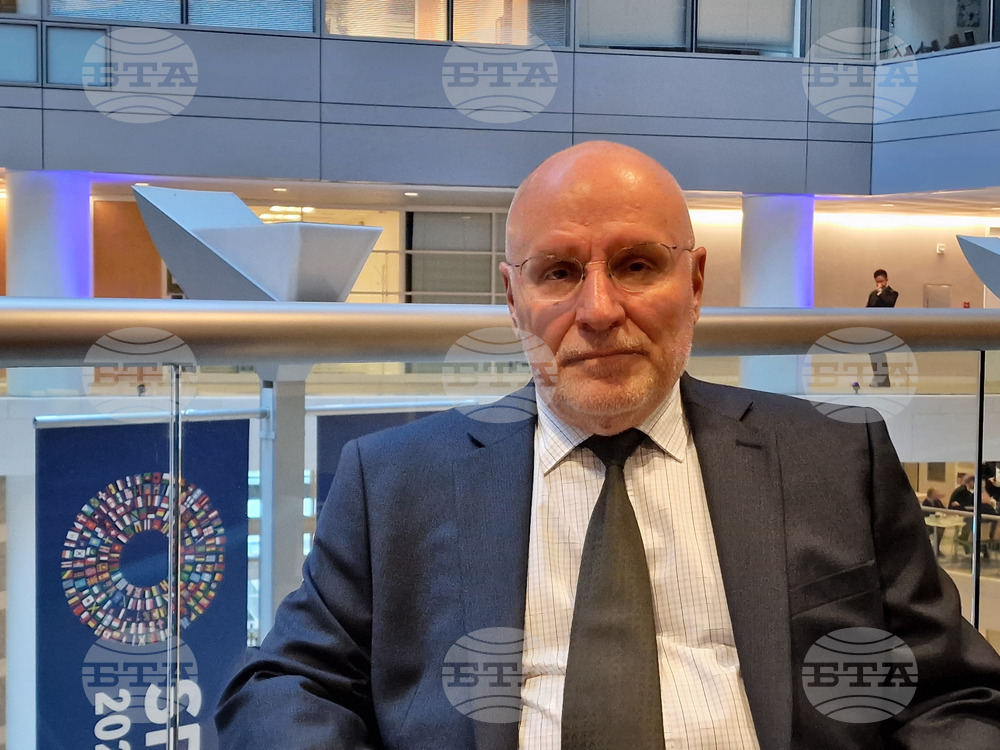site.btaCentral Bank Governor Dimitar Radev: Joining Euro Area Later in 2025 Is "Possible and More Likely Scenario at This Stage"


Bulgarian National Bank (BNB) Governor Dimitar Radev said Bulgaria's entry in the euro area later in 2025 is a possible and, at this stage, more likely scenario. He talked to BTA in Washington, D.C., where the 2024 Spring Meetings of the World Bank Group and the International Monetary Fund are taking place.
Although inflation according to the Harmonised Index of Consumer Prices has dropped for the eighth consecutive month, the decrease should be more tangible in view of the European Central Bank's June convergence report on Bulgaria's entry in the euro area, said Radev. In this context, if Bulgaria fails to meet the inflation criterion in June and does so later in 2024, joining the euro area later in 2025, rather than on January 1, is a possible and, at this stage, more likely scenario, according to the BNB Governor.
When there is a currency board arrangement in place, the central bank has more limited options to control inflation, so the role of fiscal policy in influencing prices is even greater, Radev said. "The budget should be counter-cyclical, or, in other words, anti-inflationary, which it is not at the moment. Global experience, as well as our own, shows that this can best be achieved through effective cost management and control measures".
Asked if a change in the tax model was an option, the BNB Governor said that given the specific conditions in Bulgaria, a tax increase in any form would rather undermine the tax base and increase the informal sector.
Regarding the technical preparations for Bulgaria's entry in the euro area, Radev said the BNB and the banking sector had achieved a very advanced stage of preparation, with concrete results in terms of the institutional framework, capacity and logistics. The central bank provides detailed information on its website and through other platforms.
He also commented on the growing mortgage lending sector, saying: "We carefully monitor and analyse the lending market and what we see keeps us on our guard, but at this stage we are not particularly worried."
The BNB is about to consider a report from the BNB Banking Supervision Department based on first quarter data, so as to decide whether to introduce additional measures. This is about the toolkit and less so about the level of macro-prudential and monetary restrictions, which is one of the highest in the EU. The decision will take into account a complex of factors, including the achievement of the objectives of price stability, fiscal consolidation and economic growth, the BNB Governor said.
Now that the IMF Executive Board has selected by consensus Kristalina Georgieva to serve as IMF Managing Director for a second five-year term starting on October 1, the Spring Meetings can focus on the challenges facing the global financial system, which can be summed up in one word: recovery, said Radev. First, recovery of price stability; second, of fiscal discipline; and third, of economic activity. This global agenda is largely identical to the economic and financial tasks that Bulgaria has to address.
/DD/
news.modal.header
news.modal.text